#basic economics
Text
One sentence to get EV haters to shut up

“I think everyone should be allowed to drive whatever they want - as long as they pay to clean up the emissions they create.”
I’ve used this a bunch. Just watch their heads start to spin as they realize this entirely fair and basic-economics response butts against the reality of how much their emissions will cost them. In a best case scenario, the average combustion-engine driver would be looking at an extra $500/yr (and this is just for the CO2 cleanup; there are other emissions as well). But with the pick-up lovers and less ideal scenarios, they could easily be looking at an extra $2,000/yr to the gov’t for environmental clean-up. After 20 years, could collectively total as much as $40k, or the price of the car itself.
And frankly, that could potentially bring a LOT of money - and thus R&D - into the CO2 cleanup industries, like direct carbon capture, which still needs a lot of work. So their CO2 tax money would really help advance sustainability causes. And meanwhile, EVs are getting faster, longer range, more sustainable, and cheaper each year. (I usually mention all this too as the gears in their heads are slowly turning.)
Enjoy
P.s. “Oh yea?! Well then do you agree that EVs should be taxed for any emissions they may cause in their construction or lifecycle?!” - Yes. Yes, I do.
11 notes
·
View notes
Video
youtube
Thomas Sowell Words of Wisdom #quotes #wisdom #fact #motivation #motiva...
Thomas Sowell is an American economist, social theorist, and author known for his conservative views. Born on June 30, 1930, in Gastonia, North Carolina, Sowell has made significant contributions to the fields of economics, political philosophy, and social commentary.
Sowell's work often focuses on the role of government, race, and culture in shaping economic outcomes. He is a prolific author, and some of his notable books include "Basic Economics," "Race and Culture," and "Intellectuals and Society." Sowell has been associated with free-market economic thought and has been a critic of affirmative action policies.
1 note
·
View note
Text
Review sách:Basic Economics: Kinh tế học cơ bản, a bờ cờ, kinh tế học nhập môn Tác giả Thomas Sowell
Thomas Sowell là một trong những nhà kinh tế học hàng đầu của thế giới, là giáo sư tại Trường Đại học Stanford và cũng là tác giả của nhiều cuốn sách nổi tiếng về kinh tế học, chính trị và lịch sử. Cuốn sách “Basic Economics: Kinh tế học cơ bản” là một trong những tác phẩm nổi bật của ông, được viết dành cho những người mới bắt đầu tìm hiểu về lĩnh vực kinh tế học.
Mua trên Tiki
Mua trên…
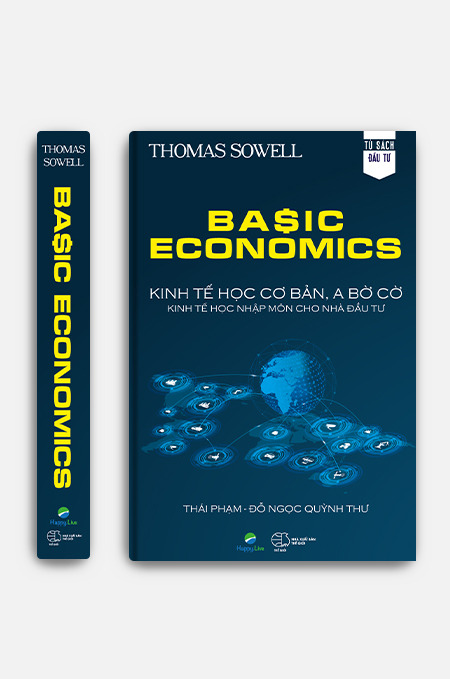
View On WordPress
#Basic Economics#Các khái niệm cơ bản của kinh tế học.#Chính sách thuế#Chính sách tiền tệ#Cuốn sách kinh tế học#Cung cầu#Economics#Học kinh tế#Kinh nghiệm kinh tế#Kinh tế học#Kinh tế học cơ bản#Làm chủ kinh tế#Lịch sử kinh tế#Lý thuyết kinh tế#Nhập môn kinh tế học#Nhu cầu#Phân tích kinh tế#Quyết định chính trị#Tác động kinh tế#Thomas Sowell
0 notes
Photo

Pro Tip: If you put money in the bank, they have to offer it back to you. That’s how it works.
0 notes
Text
this twitter blue shit is absolutely murdering me genuinely what the fuck are you little weirdos talking about
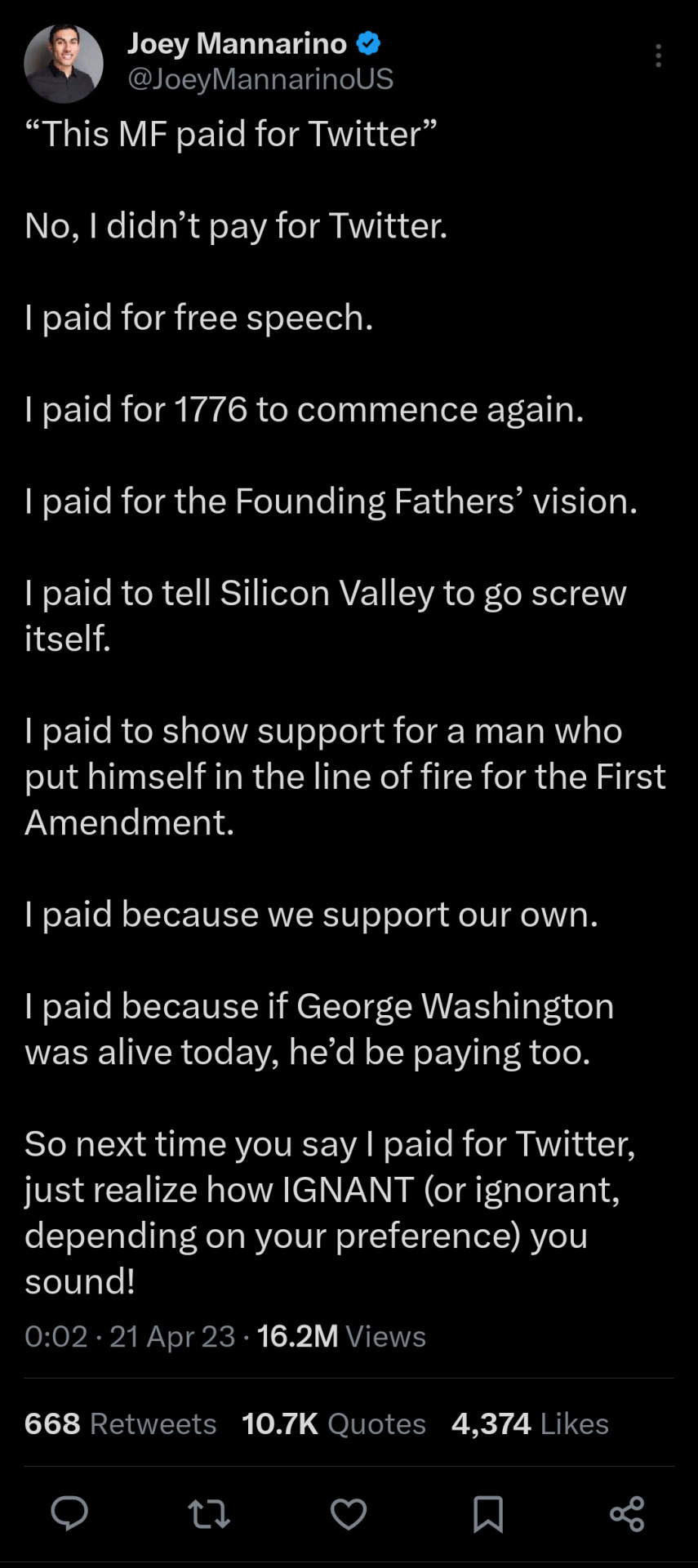

"george washington wants you to pay $8 a month for free speech" is not the serious take you want it to be but it is sooooooo absurdly fucking funny
#like technically they are fully absolutely correct about u.s. founding fathers hiding freedom/rights behind economic barriers#but very much not in the way they want it to be#elon musk#twitter#twitter blue#filter out those tags as desired pls it is truly an unhinged dumpster fire over there with a big ol fasc-y stink in the air#images not described#ill go back to add that this evening#anyways this is why nobody wants this shit no matter how hard musk tries to force it on them now#basically everybody who paid for that little blue checkmark is Like This about it and just in general
2K notes
·
View notes
Text
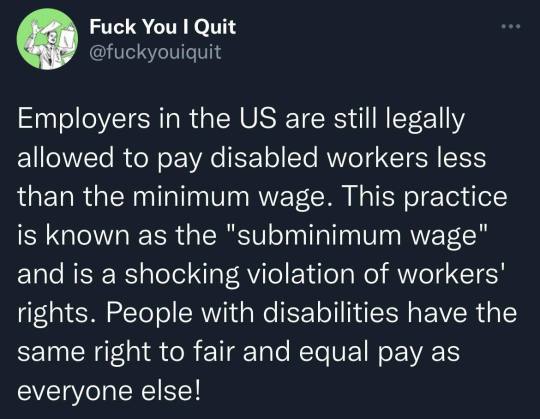
#minimum wage#minimum salary#universal basic income#disabilties#disability#disabled#subminimum wage#democratic socialism#socialism#leftist#anarchy#anti capitalism#communism#marxism#capitalism#eat the rich#fuck capitalism#late stage capitalism#economics
2K notes
·
View notes
Text
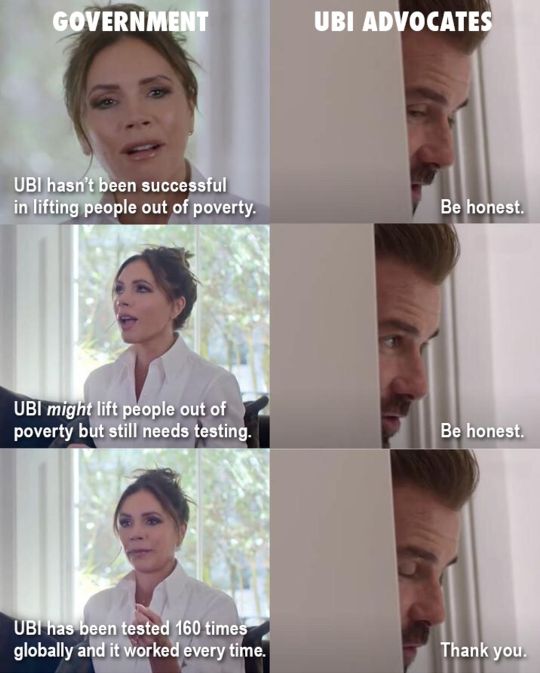

#universal basic income#UBI#social welfare#unconditional transfer payment#means test#guaranteed minimum income#poverty line#full basic income#partial basic income#pilot projects#Mongolia#Iran#child benefit#pension#Bolsa Familia#Thamarat Program#economic crisis#COVID-19 pandemic#direct payments#Alaska Permanent Fund#negative income tax#NIT
179 notes
·
View notes
Text

day 99
i have NEARLY finished the skirt for my ren faire fit i just gotta get a few finishing details added and also get the undershirt bleached (bc i got a bunch of makeup on it at last years fair and shit Stained) but THEN i can show yall the final fit!!
#day 99#year 5#aradia megido#homestuck#its gonna be cute#i was so fucking stressed abt this one because like.#i bought my fabric and i was like oh yeah dude this is toooootally more than enough for a circle skirt#went to finally cut things#realized i only had enough for a half-circle skirt and it would end up with a bunch of weirdly-shaped scrap at the end#(ie i would have to do a bunch of weird piecing to make the waistband and pockets and such)#and like honestly a half-circle skirt was NOT enough volume for me i need my skirts swooshy#so i was like well. okay. i think i can optimize my fabric usage more if i draft a paneled skirt#but this of course required..... Math.#and unfortunately. i was an art major. so. there was a lot of struggling#BUT I DID IT. THERE WAS STILL A LIIIIITTLE BIT OF PIECING THAT HAD TO BE DONE BUT IT IS MINIMAL AND CAMOUFLAGED PRETTY WELL#and also this is for a ren faire primarily bc i dont wear a lot of skirts in day-to-day#SO. economical fabric usage is absolutely period accurate. even though none of the rest of my outfit or techniques are.#basically all thats left for me to do is add pockets and the closure at the back#i meant to add the pockets as i was doing the main construction but i got too excited and forgor#so theres gonna be some seam ripping but nothing too bad
121 notes
·
View notes
Text
Isn't it fucked up Warren accepted to be cyro frozen With the risk of memory loss because he didn't want to be responsible for his life. And when he did lose his memory he still wanted the same thing... It's like the only way to get rid of your problems is to face them
#i love the themes of avoidance in this podcast like#1. warren 2. Gordon basically being ok with being kidnapped so he doesn't have to deal with life's responsibilities#3. cyro tech being used on prisons so that they doesn't have to provide prisoners with food shelter or rehab#4. cyro tech being used on a cruise ship out in the ocean away from economic disparity and conflict#5. cyrotech being used to sleep through ecological destruction instead of solving it#I LOVE THEMES#red valley#text toast
89 notes
·
View notes
Video
Melissa Ciummei - Universal basic income - Its a tax trap.
#Melissa Ciummei#Universal Basic Income#UBI#WEF#World Economic Forum#Control#Digital Process#Social Credit System#NWO#New World Order
548 notes
·
View notes
Text
There's several incredibly easy criticisms, but I feel the concept of "corporate greed" becomes particularly incoherent when used to explain the prices of something having only just now gone up
you think corporations only invented greed last week and simply had not thought to raise prices anytime earlier?
#economics#greed#'greed' is for leftists basically what 'laziness' is for authoritarians#a non-explanation whose function is to moralize rather than understand#hm also that's two “deadly sins”. lessee if we can rope more of them into this#'lust' yeah is kind of a boogeyman of conservatives#'wrath' / 'hate' a boogeyman of… anyone too deep into politics#pride-as-a-boogeyman = Law of Jante#gluttony-as-a-boogeyman = naïve fatphobia and some weirder types of anti-consumerism#idk envy. honestly I think envy might actually exist
84 notes
·
View notes
Note
Any thoughts/opinions on the idea of Universal Basic Income?

So I come out of MMT-adjacent circles that tend to focus on Job Guarantees over Universal Basic Income(s).
There is a certain amount of rivalry and bad blood between these two camps, as they see their projects as competing for the same policy "space" as solutions to poverty and unemployment. For example, back when I was on twitter I got into quite a few arguments with Matt Bruenig, who is a UBI advocate and quite hostile to Job Guarantees, and I was not the only MMTer/job guarantee advocate who mixed it up with Bruening and his supporters.
For my own part, I am not opposed to incomes policies in general. Certainly, I think we saw from COVID-era initiatives around Unemployment Insurance and the Child Tax Credit that incomes policies can be tremendously effective in stabilizing consumer demand, preventing eviction and homelessness, and especially in cutting poverty rates. Likewise, I think there is now pretty solid empirical evidence that the concerns about employment effects that were the bane of UBIs and Negative Income Tax (NIT) proposals from the 1970s onwards are baseless.
That being said, I think there are other critiques of UBI from the left that were raised by Hyman Minsky in the late 1960s and 1970s that (instead of focusing on employment effects and the ideological question of "dependency") center on the fiscal capacity of the state, the problem of inflation, and the inability of UBIs to solve the problem of lost labor-time, which remain open questions.
This is why I am skeptical of the more Georgist approach to UBI as panacea. To my mind, incomes policies are a partial solution to some socioeconomic problems that have some side effects; they need to be buttressed by complementary policies (including job guarantees) that can do things UBIs can't, while also dealing with UBI's side effects. In some sense, it shouldn't be very surprising that a belt-and-braces strategy is best, because that was the intended vision for a comprehensive New Deal order proposed by the National Resources Planning Board in 1942.
#public policy#economic policy#social policy#universal basic income#negative income tax#job guarantee#job guarantees#my day job#mmt#political economy#ubi#people must live by work#policy history
81 notes
·
View notes
Text
*Sweating throwing up nauseous dizzy*
What if vox is Asian American



#Hazbin hotel#vox#hcs#musings#idk I just think it would be cool#i feel like there aren’t a lot of East Asian villains that are allowed to be sloppy boisterous and vulgar outside of media made by Asian#people#I know a lot of people draw his human form white as a sheet but i dunno#I also think that would explain why he initially clicks with Alastor so much#both of them are part of marginalized groups in their respective time periods#swamped by the expectation to be subservient to their white peers#but they both rise above it with their passion for the innovation of entertainment#to describe that dynamic it’s basically that Alastor is the burr to vox’s hamilton . except in this version burr wins on most levels#this also gives context to vox’s raging inferiority complex bc. if his parents were immigrants at the time compounded with the economic#and war time struggles then that probably made him feel pressured to succeed quick and hard#vox would definitely be disconnected from his culture and obsessed with pursuing the American dream#whereas Alastor i think would be v in tune with creole based language and culture as evidenced by his close relationship with his mother#near the end of Alastor and vox’s friendship Alastor would likely mock him for abandoning his roots in search of prominence#it would actually be quite sad
21 notes
·
View notes
Text
Bruce Wayne 🤝 Jason Todd
Crime Alley killed their parents
#If you look at it from the point of view of like low economic opportunity leads to poverty leads to crime and addiction#one could say that the city/environment itself is a killer. And then combine that with the ‘Gotham is basically sentient’ meta#Jason Todd#Bruce Wayne#Batman#dc#My I-am-in-eskew pilled take
27 notes
·
View notes
Text
Odd jobs are few and far between in Nearobo. Peter knows because every day he walks the streets of his village in south-east Liberia looking for one. In a good month, he might make $20 (£16.70). That’s hardly enough to feed himself, let alone his children.
But today things are looking up. As part of an innovative new donation scheme, Peter receives $40 (£33.40) per month for a minimum of three years. No paperwork. No requests for receipts. No catch of any kind, in fact. Just hard cash transferred straight to his mobile phone.
The 59-year-old casual labourer plans to use the money to buy materials for a new home for himself and his family, he says. “Although it is going to take long, I will continue until my house is completed.”
The scheme is part of a new-look approach to development assistance that, if taken to scale, could potentially turn the £156bn international aid industry on its head.
At least, so says Rory Stewart, the former UK foreign secretary turned podcaster-in-chief (he co-hosts ‘The Rest is Politics’ with Alastair Campbell, a surprise hit which has topped the Apple podcast charts virtually every week since it launched a year ago). From his new base in Amman, Jordan, Stewart heads up GiveDirectly – the world’s fastest growing nonproft – who are behind the initiative.
“It’s a rather radical, simple idea to help people out of extreme poverty. We deliver the cash directly … there’s no middleman and no government getting in the way.”
It feels like an odd statement from someone who has spent much of his life in government service: first as a junior diplomat for eight years (during which he penned a bestselling book about dodging Taliban bullets and hungry wolves whilst walking across Afghanistan), followed by almost a decade as a politician at Westminster.
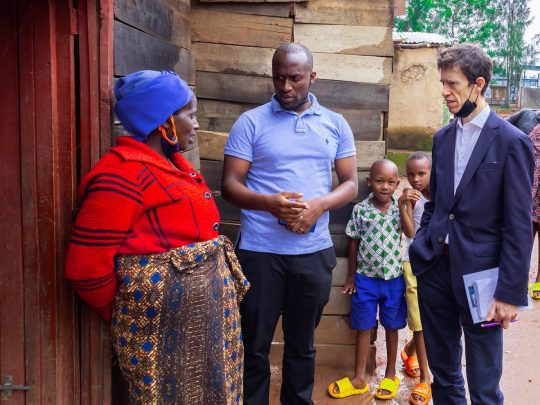
Pictured: Rory Stewart and GiveDirectly’s Ivan Ntwali talk with a refugee household in Rwanda. Image: GiveDirectly
His enthusiasm is even more surprising given his initial caution. During his various ministerial stints at the UK’s department for international development (including three months as secretary of state), he was an out-and-out “cash sceptic.”
Giving away money with no strings attached was, he felt at the time, an impossible sell to tax-paying voters. What’s stopping recipients spending it down the pub? Or investing in a hair-brained business venture?
Quite a lot it turns out. No one knows the value of money more than those who don’t have any, he argues. Give an impoverished mother-of-four $40 (£33.40) cash and, 99 times out of 100, she’ll spend it on something useful: repairs to the house, say, or school fees for her kids...
By virtue of GiveDirectly’s model, participants can spend their money on whatever they choose, but the charity’s research indicates that most goes towards food, medical and education expenses, durables, home improvement and social events.
On the flipside, Stewart also has numerous examples of well-funded aid projects that deliver next to nothing. A decade ago, the then United Nations general secretary Ban Ki-moon estimated that 30 per cent of aid money disappears in corruption. There is little to suggest much has changed.
The aid industry doesn’t need corrupt officials to see its funds evaporate, however; it has its own voluminous bureaucracy. Stewart recalls once visiting a $40,000 (£33,560) water and sanitation project in a school in an unnamed African country. The ‘deliverables’ were two brick latrines and five red buckets for storing water...
The beauty of direct giving, he stresses, is not just that it annuls opportunities for thievery and red tape; it also frees the world’s poorest individuals from the well-meaning but, very often, misplaced guidance of donors. An aid expert in Brussels or Washington DC may well have a PhD in development economics, but who is best to judge what a single mother in a Kinshasa slum needs most and how to obtain it most cheaply: the expert with her degree, or the mother with her hungry children?
Empowering recipients to decide for themselves helps end the kind of “mad world” where aid agencies pay to ship wheat from Idaho, US, to Antananarivo, Madagascar, only for local people to sell it in order to buy what they really want, Stewart reasons.
“So often, these communities are having to turn the goods we send them into cash anyway, but just in a very inefficient and wasteful fashion … instead [with direct cash transfers] they are given the choice and freedom in how to spend it.”

Pictured: Villagers in Kilif, Kenya, at a public meeting about the GiveDirectly programme. Image: GiveDirectly
Is the system perfect? No, clearly not. Stewart concedes that opportunities for fraud and coercion exist. To minimise these risks, GiveDirectly employs field officers to meet face-to-face with recipients, as well as a team of telephone handlers and internal auditors to follow up on reports of irregularity.
By his reckoning, however, the biggest impediment to direct giving really taking off is donor reticence. At present, only 2 per cent of official aid is given direct in cash. Stewart thinks it should be closer to 60 or 70 per cent...
‘My children will not have to beg anymore’
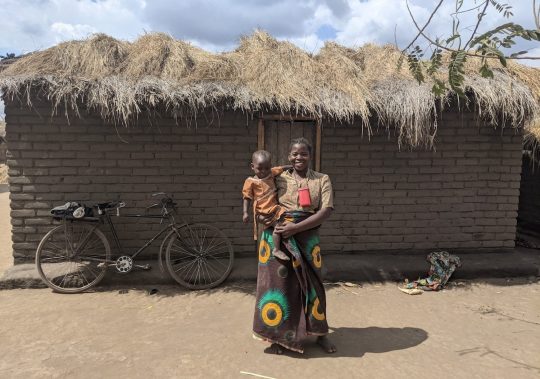
Happiness Kadzmila from Malawi enrolled on GiveDirectly’s Basic Income project last summer. She will now receive $50 (£41) a month for a year ($600/£496 in total).
What are the biggest hardships you’ve faced in life?
I am a divorced mother of four children. I got divorced in 2020 while I was eight months pregnant with my last-born child. Since then, I have been depending on working on other people’s farms. I get paid $0.49 (£0.43), or a plate of maize flour per day. As a result, it has been a challenge to feed my children, buy clothes for them, and to pay their school fees My firstborn child is in year 4, the school charges $0.69 (£0.61) per day for her. My second is in year 3, I pay $0.49 (£0.43) for him. There were days when I would have no food in my home, and my children would go to my neighbours’ homes to beg for food. This made me feel sorry for my children as a mother.
What does receiving this money mean for you?
I was so happy the day I received cash amounting to $51.75 (£43.56) from GiveDirectly. I used the money to buy maize at $9.88 (£8.32). My children will not have to go to our neighbours to beg for food anymore. I also bought a sheep at $34.58 (£29.10). I will be selling sheep in future when they multiply. I also bought lotion and soap at $1.88 (£1.58).
How will you spend your future payments?
I plan to renovate my house. I have always admired those who sleep in houses made of a roof with iron sheets because they do not have to think of fetching grass every year for a new roof. I will also start a business selling doughnuts to sustain my income after I receive my last transfer. I did not know that an organisation like GiveDirectly would come to help me this way All I can say to those who are giving us this money is ‘thank you’."
-via Positive News, 3/3/23
More and More People to Help
In addition to their universal basic income programs, GiveDirectly also has dedicated programs where you can donate to emergency disaster relief, people living under the protracted civil war and human rights disaster in Yemen, refugees, and survivors of the Syria-Turkey earthquake.
They have also commissioned a number of large-scale, third-party studies on the effectiveness of their numerous universal basic income models. Find these and other projects here.
#charity#donations#foreign aid#extreme poverty#poverty#economic inequality#africa#yemen#syria#turkey#malawi#kenya#rwanda#refugees#refugee crisis#givedirectly#universal basic income#good news#hope
197 notes
·
View notes